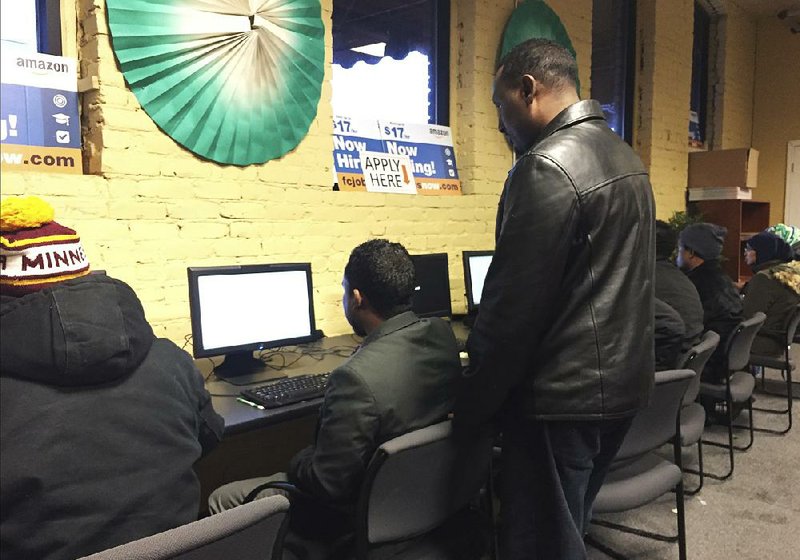MINNEAPOLIS -- In a busy office in the heart of Minneapolis' largest Somali neighborhood, about a dozen young men and women lined up at computers to work on resumes or apply for jobs. A few feet away stood a photo station, ready to create employee badges for those lucky enough to get hired on the spot.
The employment center, which has helped roughly 1,000 people find jobs since it opened in May, is one of several initiatives formed in Minnesota as part of a federal pilot project designed to combat terror recruiting.
Those at the forefront of these efforts say they plan to keep them going.
"Our work will continue no matter what," said Mohamud Noor, executive director of the Confederation of Somali Community in Minnesota. "We want to send a strong message: If you get people engaged, focus on their needs and are able to connect with them, you end up raising the whole community up."
The Barack Obama administration launched pilot projects in Minneapolis, Boston and Los Angeles in late 2014 as part of its broader strategy to counter violent extremism.
Minnesota's previous efforts served as a model for the national strategy, according to John Cohen, former counterterrorism coordinator at the Department of Homeland Security. These programs are "critically important," he said, adding that many people who swear allegiance to extremist groups like the Islamic State are doing so mainly because they want to feel connected.
In Minnesota, the state's large Somali community has been vulnerable to terrorism recruiters. Roughly three dozen people, mostly Somali men, have joined militants in Somalia or Syria since 2007. Last month, nine men were sentenced for plotting to travel to Syria to join the Islamic State group. And in September, a 20-year-old Somali-American stabbed and injured 10 people at a central Minnesota mall before he was shot and killed by an off-duty police officer. The FBI has said his actions suggest he'd been radicalized.
Noor's employment center was among six groups that work with Somali youth that received funding, along with a youth sports group and a program that empowers Somali parents. While the federal money was one-time funding, private partnerships continue. In addition, the state of Minnesota has set aside $2 million to support Somali youth and workforce readiness.
Meanwhile, the Homeland Security Department is moving ahead with plans to award $10 million to help states combat terror recruiting.
Regardless of any policy changes with the administration of President-elect Donald Trump, Farhio Khalif, a member of the Somali-American Task Force that's been spearheading the Minnesota effort, said, "We cannot let this go."
Noor agreed. Many people who visited his center have connected with employers like Amazon, the airport, Shutterfly and others. Some have been hired for jobs paying $16 or $17 an hour.
When asked if his efforts, or others like it, can truly prevent someone from buying into violent ideologies, Noor said that's an unanswered question, but providing opportunities and makes people feel valued.
A Section on 12/25/2016

